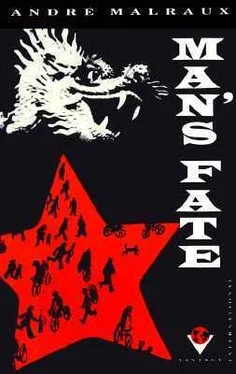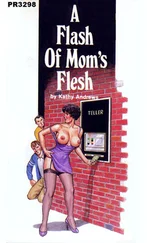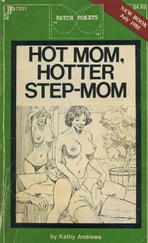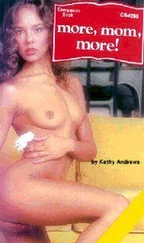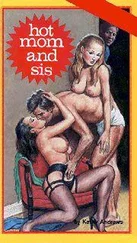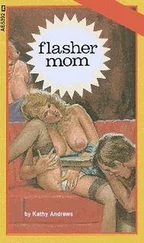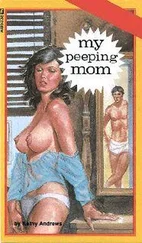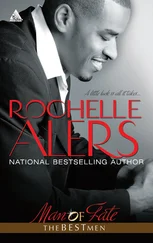Andre Malraux - Man's Fate
Здесь есть возможность читать онлайн «Andre Malraux - Man's Fate» весь текст электронной книги совершенно бесплатно (целиком полную версию без сокращений). В некоторых случаях можно слушать аудио, скачать через торрент в формате fb2 и присутствует краткое содержание. Год выпуска: 1990, Издательство: Vintage, Жанр: Современная проза, на английском языке. Описание произведения, (предисловие) а так же отзывы посетителей доступны на портале библиотеки ЛибКат.
- Название:Man's Fate
- Автор:
- Издательство:Vintage
- Жанр:
- Год:1990
- ISBN:нет данных
- Рейтинг книги:3 / 5. Голосов: 1
-
Избранное:Добавить в избранное
- Отзывы:
-
Ваша оценка:
- 60
- 1
- 2
- 3
- 4
- 5
Man's Fate: краткое содержание, описание и аннотация
Предлагаем к чтению аннотацию, описание, краткое содержание или предисловие (зависит от того, что написал сам автор книги «Man's Fate»). Если вы не нашли необходимую информацию о книге — напишите в комментариях, мы постараемся отыскать её.
As a study of conspiracy and conspirators, of men caught in the desperate clash of ideologies, betrayal, expediency, and free will, Andre Malraux's novel remains unequaled.
Man's Fate — читать онлайн бесплатно полную книгу (весь текст) целиком
Ниже представлен текст книги, разбитый по страницам. Система сохранения места последней прочитанной страницы, позволяет с удобством читать онлайн бесплатно книгу «Man's Fate», без необходимости каждый раз заново искать на чём Вы остановились. Поставьте закладку, и сможете в любой момент перейти на страницу, на которой закончили чтение.
Интервал:
Закладка:
He came to a few seconds later: he had neither felt nor heard the cracking of bones that he expected: he had sunk into a dazzling globe. No more coat. With his right hand he was holding a piece of the car-hood full of mud or blood. A few meters away a pile of red wreckage, a surface of shattered glass on which shone a last reflection of light, some. already he was unable to make out anything further: he was becoming aware of pain, which in less than a second went beyond consciousness. He could no longer see clearly. He felt nevertheless that the square was still deserted. Did the police fear a second bomb? He was suffering with all his flesh, from a pain that could not even be localized: nothing was left in but suffering. Someone was approaching. He remembered that he was to seize his revolver. He felt for his trouser-pocket. No more pocket, no more trousers, no more leg. Hacked flesh. The other revolver, in his s^rt-pocket. The button had come off. He seized the weapon by the barrel, turned it round without knowing how, instinctively pulled the trigger with his thumb. He opened his eyes at last. Everyth^ing was turning, slowly and inevitably, along a great circle- and yet nothing existed but pain. A policeman was near by. Ch’en wanted to ask if Chiang Kai-shek was dead, but he wanted to know this in another world; in this world, that death itself was unimportant to him.
With a violent kick in the ribs, the policeman turned him over. Ch’en shrieked, fired straight ahead, at random, and the rebound rendered the pain, which he believed limitless, even more intense. He was going to faint or die. He made the most terrific effort of his life, managed to get the barrel of the revolver into his mouth. Expecting the new rebound, even more painful than the preceding one, he no longer moved. A furious kick from another officer caused al his muscles to contract: he fired without being aware of it.
Part Five
~ ~ ~
PLOWING through the mist, the car entered the long sandy driveway that led to a gambling-house. “I have time to go up,” Clappique thought, “before going to the Black Cat.” He was determined not to miss Kyo, because of the money he expected from him and because this time, perhaps, he would not only warn him, but save his life. He had had no trouble obtaining the information Kyo had asked him for: the spies knew that a movement of Chiang Kai-shek’s special troops was planned for eleven o’clock, and that all the Communist Committees would be surrounded. It was too late now to say: “The reaction is imminent.” The order must be: “Don’t go to any of the Committees tonight.” He had not forgotten that Kyo was to leave at eleven-thirty. Some Communist meeting, then, was planned for tonight, which Chiang Kai-shek intended to crush. What the police knew was occasionally inaccurate, but the coincidence was too obvious. If Kyo were warned he could put off the meeting, or, if it was too late, not go there.
“If he gives me one hundred dollars, I will perhaps have enough money: a hundred, and the hundred and seventeen I collected this afternoon in congenial and uniformly illegal ways, two hundred and seventeen. But perhaps he won't have anything. This time there aren't any firearms to turn the trick. Let’s first try to manage by ourselves.” The car stopped. Clappique, who was wearing his dinner-jacket, gave two dollars. The driver, bare-headed, thanked with a broad smile: the fare was one dollar.
“The purpose of this liberality is to permit you to buy a 1-little Derby hat.”
He raised his forefinger, a symbol of truth:
“I say: Derby."
The driver was driving off.
“For from the plastic point of view, which is that of all worthy minds,” continued Clappique, standing in the middle of the gravel driveway, “that fellow requires a Derby.”
The car was out of sight. He was addressing only the night; and, as though it were answering him, the fragrance of the wet bo^ood and spindle-trees rose from the garden. That bitter fragrance was Europe. The Baron put his hand to his right pocket, and instead of his wallet, felt his revolver: the wallet was in the left pocket. He looked at the dark windows, which could barely be made out. “Let’s think. ” He knew he was merely trying to prolong the moment when the game was not yet begun, when flight was still possible. “The day after tomorrow, if it has rained in the meantime, this same fragrance will be here; and I shall perhaps be dead. Dead? What am I talking about? Madness! Not a word; I am immortal.” He went in, climbed the stairs to the second floor. The sound of counters and the voice of the croupier seemed to rise and fall with the layers of smoke. The boys were sleeping; but the Russian detectives of the private police, their hands in the pockets of their coats (the right clasped round a Colt), leaning against the door-cases or walking about perfunctorily, were wide awake. Clappique went into the large hall: in a haze of tobacco-smoke through which the scroll-orna- rnents on the walls shone dimly, alternate splotches- black dinner-jackets, bare white shoulders-were leaning over the green table.
“Hello, Toto!” several voices shouted.
The Baron was often called Toto, in Shanghai. Yet he had come to this place only a few times, to accompany friends: he was not a gambler. Opening his arms, assuming the air of a fond-father-who-joyfully-finds-his- lost-children, he shouted:
“Bravo! It moves me deeply to be able to join this 1-little family-party. ”
But the croupier was starting the ball; the attention left Clappique. He lost his value, here; these people did not need distraction. Their eyes were all magnetized by that ball, in an absolute discipline.
He had a hundred and seventeen dollars. To play straight on the numbers would have been too dangerous. He had decided, beforehand, to play odd or even.
“A few congenial l-little counters,” he said to the man who was distributing these.
“At how much?”
“Twenty dollars.”
He decided to play one counter each time; always even. He had to win at least three hundred dollars.
He placed his counter. Number 5 came up. Lost. Neither important nor interesting. He placed again, still even. The 2. Won. Again. The 7: lost. Then, the 9: lost. The 4: won. The 3: lost. The 7, the r: lost. He had lost eighty dollars. He had only one more counter.
His last chance.
He tossed it with his right hand; he no longer moved the left one, as if the motionlessness of the ball were somehow holding it tied. And yet this hand seemed to be drawing him. He suddenly remembered: it was not his hand that was disturbing him, it was the watch he was wearing on his wrist. Eleven twenty-five. He had five minutes to reach Kyo.
The time before the last he had been sure of w^inng: even if he was to lose, he could not lose so fast. He had been foolish to attach no importance to his first loss; it was certainly a bad omen. But one almost always wins on the last stake; and the last three times the n^ber had come out odd. Since his arrival, however, there had been more odds than evens, since he was losing. Should he change, play odds? But something was now urging him to remain passive, to submit: it seemed to him that he had come just for this. Any gesture would have been a sacrilege. He left the stake on an even number.
The croupier started the ball. It began to go round, slowly as always, seemed to hesitate. Since the beginning, Clappique had seen neither red nor black come out. Those points now had the best chance. The ball continued its course. Why had he not played red? The ball slowed do'wn. It stopped on the 2. Won.
He must put the forty doUars on the 7, and play the number. It was obvious: henceforth he must play his own game. He placed his two counters, and won. When the croupier pushed fourteen counters in his direction, he discovered with stupefaction that he could win: it was not something he was imagining, a fantastic lottery with unknown winners. It seemed to him suddenly that the bank owed him money, not because he had staked on the winning number, not because he had lost in the beginning; but from the beginning of time, because of the capriciousness and freedom of his mind-it seemed to him that this ball was placing chance in his service to pay all fate’s debts. However, if he played a number again, he would lose. He staked two hundred dollars on odd-and lost.
Читать дальшеИнтервал:
Закладка:
Похожие книги на «Man's Fate»
Представляем Вашему вниманию похожие книги на «Man's Fate» списком для выбора. Мы отобрали схожую по названию и смыслу литературу в надежде предоставить читателям больше вариантов отыскать новые, интересные, ещё непрочитанные произведения.
Обсуждение, отзывы о книге «Man's Fate» и просто собственные мнения читателей. Оставьте ваши комментарии, напишите, что Вы думаете о произведении, его смысле или главных героях. Укажите что конкретно понравилось, а что нет, и почему Вы так считаете.
